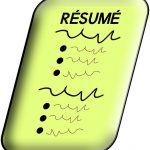Need help polishing your document? The the HBS Guide to Proofreading or the video below may help!
Category Archives: Proofreading
Comma in a List

A Comma Story–video
The Case of a Misplaced Modifier–video
150 Funniest Resume Mistakes, Bloopers and Blunders Ever
Need a laugh?
JOBMOB TOP 10 Resume Mistakes
- Application: How large was the department you worked in with your last company? “A: 3 stories.” (Resumania)
- A resume listed a skill as “being bi-lingual in three languages” (Ask Annie’s)
- Background: “28 dog years of experience in sales (four human).” (Resumania)
- In the section that read “Emergency Contact Number” she wrote “911.” (Ask Annie’s)
- Candidate drew a picture of a car on the outside of the envelope and said it was the hiring manager’s gift. (Careerbuilder.com)
- Languages: “Fluent in English. Also I have been heard muttering Gibberish in my sleep.” (Resumania)
- “Directed $25 million anal shipping and receiving operations.” (ResumePower.com)
- On one of our applications, a girl wrote ” I’m 16, I’m pregnant and I can do anything.” At the same time she turned in her application, her boyfriend handed in his. On his: “Felony for breaking and entering.” (Ask Annie’s)
- “One candidate included clipart on their resume of two cartoons shaking hands.” (Ask Annie’s)
- Application: “On the line that asked what “sex” he was, he wrote “occassionally”.” (Ask Annie’s)
See More at:
 Nguyen Hung Vu via Compfight150 Funniest Resume Mistakes, Bloopers and Blunders Ever
Nguyen Hung Vu via Compfight150 Funniest Resume Mistakes, Bloopers and Blunders Ever
The $10 Million Comma
Oh My….
Grammar Girl’s Editing Checklist
Grammar Girl’s Editing Checklist
“…we distributed a Grammar Girl editing checklist that turned out to be so popular we decided to make it widely available. Print out the checklist and keep it on your desk as a handy reference to use when you’re editing.
Using “you” when writing
At certain times and in certain documents, addressing the reader as “you” is acceptable. When writing a letter, for example, addressing the reader is common. Many of your business documents will be to a specific person and you will use “you” to address your reader.
The problem with addressing the reader as “you” comes when the writer does not mean the reader specifically. “You” is often used to make generalizations but can make for confusing and inaccurate sentences.
For example, the following sample sentence appeared in a memo to a professor:
- I have found that with the general business degree you can find a decent job.
The author is writing to a professor, so it is unlikely that the professor is looking for job opportunities presented by a general business degree. The author either means to generalize or refer to him/herself. Therefore, either of the following examples is more accurate:
- I can find a decent job with a general business degree.
- People with general business degrees can find decent jobs.
Writers should pay careful attention to their intended meaning and use either first person (I, me) or third person (they, people) in their writing. Do you (the reader of this document) mean to address your reader?
photo credit:![]() J E Theriot via Compfight
J E Theriot via Compfight
Assertive Language
In the business world, one wants to appear assertive and confident. Using “hedging” or conditional words undermines the reader’s confidence in the writer.
The most common words that undermine a writer are: seems, appears, maybe. To make your writing more assertive, delete these conditional words. Some examples appear below.
- Not assertive: It appears that the engineering department receives much of the blame.
- Assertive: The engineering department receives much of the blame.
- Not assertive: It seemed like everyone thought there was a different problem.
- Assertive: Everyone thought there was a different problem.
- Not assertive: The XYZ Corporation appears to be very successful.
- Assertive: The XYZ Corporation is very successful.
- Not assertive: The R&D team is pretty much off the hook.
- Assertive: The R&D team is off the hook. (This is terrible vocabulary, however.)
- Not assertive: The first recommendation I would make is to spell check your document.
- Assertive: First, I recommend you spell check your document.
- Not assertive: I think that maybe what the company should do is hire a consultant.
- Assertive: The company should hire a consultant.
Now that you have seen some examples, look for conditional words in your writing and eliminate as many as possible.










